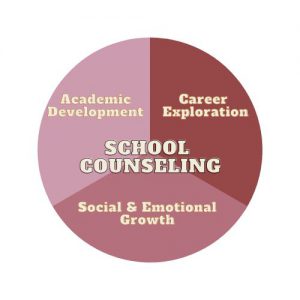NEWS
2025 Summer Newsletter
Check out the summer newsletter HERE!
Class of 2025 Information
Final High School Transcripts – will be sent by July 11, 2025 to the college indicated on the, “Senior Exit Survey” you completed in May and to the NCAA, if applicable. NOTE: It can take several weeks for colleges to post this information to your college account. You can contact the college to confirm receipt of your high school transcript. If your college destination has changed please contact the Counseling Center right away.
College Transcript Requests – If you took any College/University in High School courses (CHS/UHS) you must request an official transcript from the college where the credit was issued to the college you will be attending. If you are unsure if you registered for college credit contact the college directly. Transcripts can be requested through the college registrar’s office. See link for details. Transcript Information for CHS/UHS Courses
Working Papers – Summer 2025
Working papers and working cards will be issued at the high school. Please visit the link under Counseling Center Resources for information and forms. The Counseling Center office hours may vary during July and August so please call ahead to make sure someone will be available to assist you 518-399-9141 x83321.
Calendar of Events
- June 17-June 25 – Regents Exams. See schedule HERE
- Thurs, June 19 – No School
- Mon, June 23 – Mandatory Graduation Rehearsal, HS Auditorium at 10:00am
- Thurs, June 26 – Class of 2025 Graduation, SPAC at 12pm. Students report by 11am.
- Mon, June 30 – Report Cards mailed home.
- June 30-July 2 -Summer School Registration
- Mon, July 7 – First day of Summer School
About the High School Counseling Center
 The BH-BL High School Counseling Center provides a comprehensive school counseling program and a holistic approach to working with high school students. As vital members of the educational team, school counselors help students in areas of academic achievement, career exploration and social emotional development. The counselors provide individual academic planning and goal setting; post secondary exploration including higher education, military or entrance to the workforce; and collaboration with families, teachers, administrators, and community members to promote student success.
The BH-BL High School Counseling Center provides a comprehensive school counseling program and a holistic approach to working with high school students. As vital members of the educational team, school counselors help students in areas of academic achievement, career exploration and social emotional development. The counselors provide individual academic planning and goal setting; post secondary exploration including higher education, military or entrance to the workforce; and collaboration with families, teachers, administrators, and community members to promote student success.
Counselors are student advocates, resources of information, and a supportive presences in the school environment. The goal of the school counseling team is to contribute to the academic, social, and career development of students as they transition from teenagers to well-rounded, productive adults.
Read more about the role of the high school counselor.
Social-Emotional Learning (SEL)
Why SEL?
According to the Collaborative for Academic, Social and Emotional Learning (CASEL), the world’s leading organization promoting integrated academic, social and emotional learning for all children in schools, social and emotional learning (SEL) is the process through which all young people and adults acquire and apply the knowledge, skills, and attitudes related to 5 key areas:
- Self Awareness: The ability to understand one’s own emotions, thoughts, and values.
- Self Management: The ability to manage one’s own emotions, thoughts, and behaviors and achieve personal and collective goals.
- Social Awareness: The ability to understand the perspectives of and empathize with others, including those from diverse backgrounds, cultures, and contexts.
- Relationship Skills: The ability to establish and maintain healthy and supportive relationships and to effectively navigate settings with diverse individuals and groups.
- Responsible Decision Making: The ability to make caring and constructive choices about personal behavior and social interactions across diverse situations.
Why is SEL so important?
SEL helps children by promoting their health and well-being and contributing to the prevention of violence, truancy, bullying, and drug and alcohol abuse. In addition, SEL is associated with significant gains on academic achievement tests as well as decreased anxiety and behavior problems. According to CASEL, SEL is most beneficial when it is integrated throughout the school culture and includes collaboration with families.

